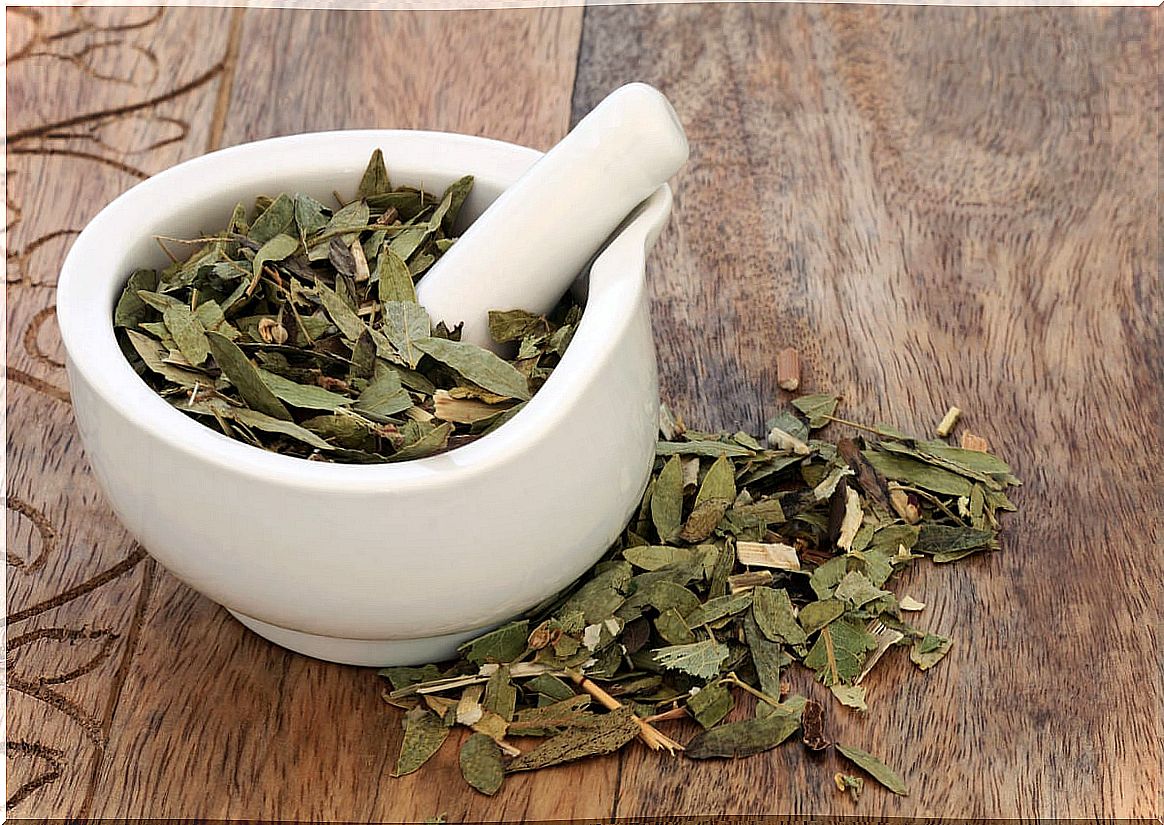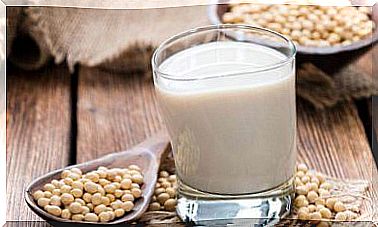Senna Leaf: What Are Its Benefits And Side Effects?
One of the main benefits of senna leaf is its laxative properties. However, it is important not to exceed the proper dosage to avoid side effects.

Senna leaf comes from a species of shrub also known as cadecillo or frijolillo , family Fabaceae. It is known in popular culture for its properties and the benefits it provides for treating constipation and some upset stomachs.
However, since it is classified as a natural laxative that acts on the intestinal mucosa, it is important to ingest it in the right doses to avoid major problems. We tell you more about its benefits and how to consume it.
Senna leaf benefits
This plant, native to northern South America, is an over-the-counter laxative. This means that you do not need a prescription to purchase it. Besides this, it is also used to alleviate gastrointestinal problems. Below we detail its benefits.
Helps relieve constipation
The most popular use of senna leaf is to relieve constipation. Although more evidence is needed in this regard, a review published in the Journal of Pediatric Surgery indicates that it is a safe treatment option to mitigate this condition in children.
However, an article in the book Botanical Medicine for Women’s Health suggests that it be consumed only for the short term and to alleviate occasional constipation. In addition, he comments that its preparation in tea is taken, in most cases, at bedtime, to produce a bowel movement the next morning.

Promotes bowel preparation before colonoscopy
Thanks to its laxative effects, senna leaf is also used as an alternative method for its benefits to prepare the large intestine before a colonoscopy. This is an exam that allows direct and complete visualization of the colon to diagnose and treat intestinal diseases.
In relation to this, a study published in the Journal of Research in Medical Sciences showed that the consumption of the extract of this plant had the same effect and benefits as a polyethylene glycol solution in the intestinal preparation of patients, one day before the procedure.
Helps to improve hemorrhoids
Hemorrhoids are swollen veins in the anus and lower rectum. One of the main causes of this problem is constipation. Although there is no evidence regarding the benefits of senna leaf to improve this condition, it is assumed that, by helping to combat constipation, it would also contribute to improving hemorrhoids.
How to prepare a senna leaf infusion?
Herbal preparations are very common to relieve the symptoms of some mild health conditions and do not require medical treatment. Although most of these drinks are aromatic and mild in flavor, in the case of senna, it is characterized by having a slightly bitter taste.
However, certain preparations of this plant are already mixed with other herbs. This makes it taste and smell better. As for its natural preparation in infusion, the process is very simple and you just have to follow the steps that we detail below.
Ingredients
- 1 cup of water (250 ml).
- 1/2 teaspoon of senna leaves (2 gr).
- Honey (optional).
Preparation
- In a small pot, pour the water and heat over medium heat.
- Before boiling, add the senna leaves and turn off the heat.
- Let stand for 10 minutes and strain the preparation.
- If desired, sweeten with honey.
- You can drink one or two tablespoons of 5 ml a day.
How long does it take to take effect?
The general recommendation is to consume it before going to sleep to see results the next morning. This is because its laxative properties take approximately 8 hours to take effect. Regarding the dose, a National Health Service publication suggests that it should not be more than 5 ml per day and should not be taken for more than a week.

Contraindications and side effects of senna leaf
Senna leaf can have adverse effects if consumed in high doses or for a long time. One of the main consequences of this is that the intestines stop working properly and a dependency on laxatives is generated.
On the other hand, excessive consumption of the plant could cause stomach aches and diarrhea. Therefore, it is necessary to consult with your doctor before ingesting it and let him know if you have any of these conditions:
- You have had an allergic reaction to senna or any medicine in the past.
- You have a bowel obstruction, Crohn’s disease, or ulcerative colitis.
- You are in the process of getting pregnant, you are already pregnant or you are breastfeeding.
Finally, remember that, in addition to this natural remedy, constipation and digestive problems can be improved by incorporating healthy habits into your daily routine. Try to eat a balanced diet high in fiber, drink at least 2 liters of water a day and do some physical activity.









